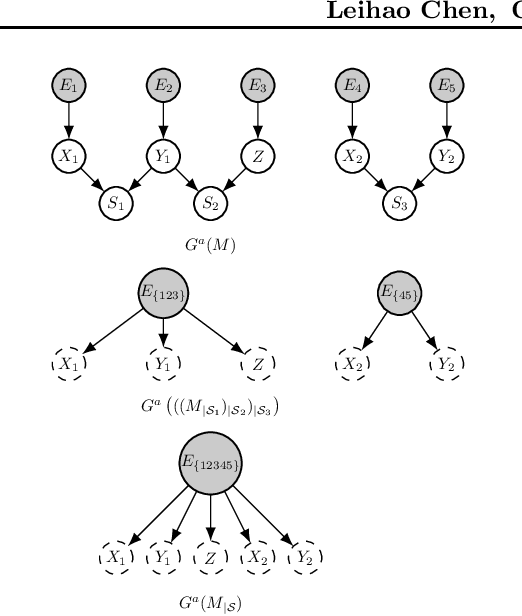Modeling Latent Selection with Structural Causal Models
Paper and Code
Jan 12, 2024



Selection bias is ubiquitous in real-world data, and can lead to misleading results if not dealt with properly. We introduce a conditioning operation on Structural Causal Models (SCMs) to model latent selection from a causal perspective. We show that the conditioning operation transforms an SCM with the presence of an explicit latent selection mechanism into an SCM without such selection mechanism, which partially encodes the causal semantics of the selected subpopulation according to the original SCM. Furthermore, we show that this conditioning operation preserves the simplicity, acyclicity, and linearity of SCMs, and commutes with marginalization. Thanks to these properties, combined with marginalization and intervention, the conditioning operation offers a valuable tool for conducting causal reasoning tasks within causal models where latent details have been abstracted away. We demonstrate by example how classical results of causal inference can be generalized to include selection bias and how the conditioning operation helps with modeling of real-world problems.
 Add to Chrome
Add to Chrome Add to Firefox
Add to Firefox Add to Edge
Add to Edge